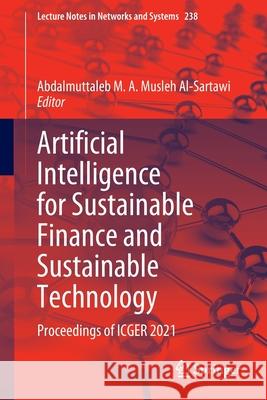Artificial Intelligence for Sustainable Finance and Sustainable Technology: Proceedings of Icger 2021 » książka
topmenu
Artificial Intelligence for Sustainable Finance and Sustainable Technology: Proceedings of Icger 2021
ISBN-13: 9783030934637 / Angielski / Miękka / 2021 / 644 str.
Kategorie:
Kategorie BISAC:
Wydawca:
Springer
Język:
Angielski
ISBN-13:
9783030934637
Rok wydania:
2021
Ilość stron:
644
Waga:
0.88 kg
Wymiary:
23.39 x 15.6 x 3.3
Oprawa:
Miękka
Wolumenów:
01
Dodatkowe informacje:
Wydanie ilustrowane











